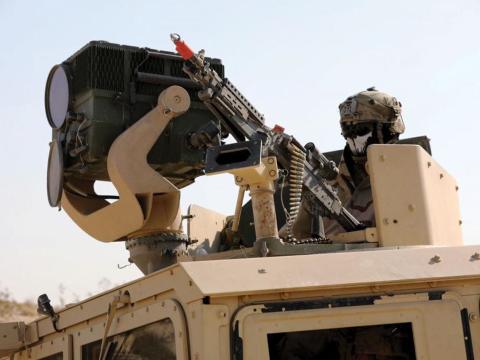MIGHT OTHERS HAVE BETTER INFORMATION THAN THE IC?
There probably should be more on my mind this Fourth of July Weekend to engage you with, but I keep coming back to how historically ineffective most Intelligence Community (IC) industry days are and how the Arab Spring is Déjà Vu all over again re the Iranian Revolution of 1979. The connection between IC industry days and reading the Arab Spring I have to admit is not-obvious (and some will say contrived), but for me they show an institutional flaw that the IC reflexively seems to ignore.
Going back to my days at ONI and DIA I can understand why program managers, acquisition professionals, and general counsels would view preparing for an agency or community industry day as though it where a colonoscopy. Having successfully gotten program requirements, priorities, and funding levels accepted and justified to your chain of command you now get to explain it all over again to bunch of “profiteering” account executives and business developers forgetting that the IC is actually not very capable when it comes to writing software, building computers, designing sensors, or integrating systems. This is why Industry Days are important to IC success. They are also important for leveling the playing field so IC needs are communicated transparently to a broad audience of potential competitors and not just to incumbents and those who can get on key officials’ calendars.
To be effective on behalf of the IC, what do industry attendees need to hear from IC presenters at industry days? Broad strategy along with agency/community priorities do provide important context, but what I am looking for as a business developer is enough information about whether bidding or teaming on an opportunity makes sound business sense for my company. That information manifests itself in the form of deliverables/statements of work, metrics, schedules, funding, and contract types. If providing this kind of information needs security protection then the industry day should be in a classified venue. All pretty basic FAR stuff, but over the years I have found most IC industry days, even in classified settings, don’t get beyond open ended bumper stickers (e.g. open competition, best value, agile, innovative, holistic, interoperable, cross domain enabled, etc.) for communicating needs that are of no help to industry without some business specifics. I remain flummoxed by how many IC industry days seem to avoid discussing RFIs and RFP’s they plan to issue in the next 12 months. Could it be they don’t have this information organized or approved for presentation? Certainly the IC couldn’t believe its industrial base is not interested in this type of information - - - could they?
I see two root causes for IC industry days being so vapid: one structural and the other based on a correctable information gap. Structurally the DoD/IC acquisition process as embodied in the FAR and DoD 5000 series instructions places the acquisition community between IC end users and private sector providers because it views deliverables, metrics, schedules, contract types as part of the competition process. I was born at night, but not last night so I am not about to suggest to this informed readership that much can or should be done about this beyond the IC recognizing this reality and mitigating it by having IC subject matter experts not just acquisition or leadership officials talk about what is being sought and why at industry days. Providing information that is relevant to industry decision making about IC contract opportunities is, however, much more addressable. IC industry day sponsors and organizers need to ask likely attendees during the planning stages to tell them what they are looking to learn from an Industry day event, then try to accommodate as much of that as possible in the industry day agenda vice telling the private sector what the IC thinks contractors need to know!
When it comes to the Arab Spring I am conflicted about the IC’s performance. As discussed in this space back in February I know the IC had a good handle on the underlying economic, political and social stresses to the authoritative regime in the Middle East and effectively characterized this situation for decision makers. However, expecting the IC to warn that a throttled Tunis fruit vendor immolating himself in protest would lead to the fall of two governments and revolt against a third inside of three months is akin to expecting the police in a known high crime area to be able to predict where the next break-in will take place. What is disconcerting to me, though, is how similar the events in Egypt that lead to Mubarak being forced from office are to those that lead to the downfall of the Shah of Iran in 1979 and that could presage the future of the leadership in Pakistan.
What was common between Iran in 1979 and Egypt in 2011 is that both countries were led by long standing authoritarian figures strongly relying on the military and the secret police to beat down political opposition to regimes the United States supported for reasons of regional stability important to US national interests. Because of US support, the IC’s best sources of information regarding opposition in Iran and the Shah’s ability to stay in power were wearing uniforms or were members of the Savak. This led to intelligence reporting during the Islamic Revolution in 1979 indicating that if even if the Shah was forced from power, Iran’s government would remain secular because the Iranian Army and the secret police believed the Islam radicals lacked the popular support to take over the government---- a claim the IC could not independently verify even though there were regular protests by noticeable numbers of Iranian citizens in the US in front of the White House wearing bags to mask their faces so they and their families would not be subjected to Savak retaliation. Press reporting at least suggests a similar pattern of events in Cairo earlier this year where our best intelligence reporting was coming from the Egyptian military with no creditable way (i.e. alternative sources) to assess the political strength of “flash crowds” being organized against the Mubarak government on Tweeter. While I want to believe that the Pakistani military is firmly in control of the nuclear weapons there, I would feel better about this assertion if I thought we were hearing it from “noncoms” who actually guard the weapons vice just from generals who have a vested interest in telling the US what we want to hear.
There is certainly no easy way for the IC to develop alternative sources in quasi friendly countries with authoritarian leaders, which I find analogous to the structural blinders acquisition regulations put on IC industry days. Similar to asking industry day attendees what they are looking for, the Arab Spring indicates the IC should be turning to social media analytics that can provide insight into what social or political movements are seeking and their ability to achieve these goals in authoritarian states important to the US.
So what is the institutional flaw that I believe both IC industry days and the Arab Spring reveal about the IC that it is reflexively ignoring - - - that others often have better information than the IC does. That’s what I think; what do you think?



